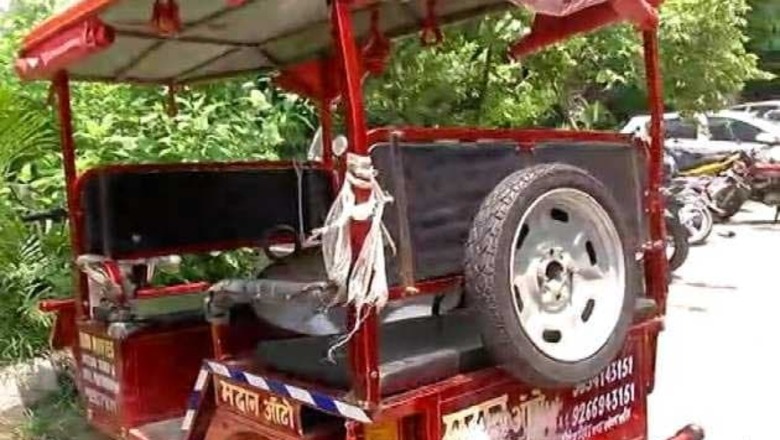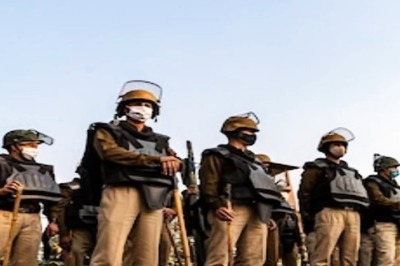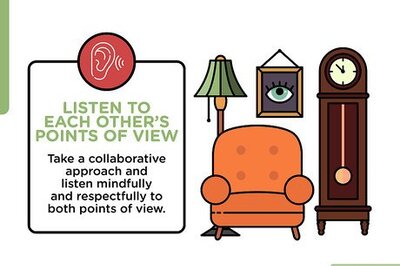
views
New Delhi: The ban on plying of e-rickshaws in the national capital will continue for a week as the Delhi High Court on Thursday refused to pass any interim order to permit their operation till August 28, saying "we have to be clear about what we are doing, can't do it just like that".
A bench of justices Badar Durrez Ahmed and Siddharth Mridul made the observation while refusing the Centre's plea that e-rickshaws be allowed to ply on the basis of the interim guidelines devised by Ministry of Road Transport and Highways, and listed the matter for further hearing on August 28.
The bench also suggested to the Centre, represented by Additional Solicitor General (ASG) Pinky Anand, that "if there is a gap in the law, then the executive can act and fill it up."
"Why should we direct you? You do it. Fill up the vacuum with executive order. Where Legislature has acted and there is a law (Motor Vehicles Act), if there is any gap in the law the Executive can act and fill it up," the bench said, adding, "We have to be clear about what we are doing. Can't do it just like that."
The court also observed that according to the Supreme Court's Vishaka judgement, the Executive has the power to fill the vacuum in the absence of suitable legislation. The ASG, however, wanted directions from the court to the Centre to fill up the "vacuum".
"High Court may direct us to do it," the ASG said, adding there is no unwillingness on the part of the government and the only problem in the instant matter is the "time lag". "The issue here is of right to livelihood of poor people," she said, seeking interim orders from the court. The bench, however, refused to pass any orders till the next date of hearing.
During the proceedings, advocate Sugrive Dubey, appearing for Shanawaz Khan on whose plea e-rickshaws were banned by the high court on July 31, submitted that since 2012 the Delhi government has been saying that these vehicles are illegal and a hazard to traffic and pedestrians but nothing has been done till date to regulate them.
He referred to various public notices of the government as well as inter-departmental letters in which plying of e-rickshaws were held to be illegal.
"For last two years they have not done anything, what will they do in two months?" he asked, while opposing the Centre's plea to allow e-rickshaws to ply for two months by when the rules to govern them under the Motor Vehicles (MV) Act would be enacted.
Advocate RK Kapoor, appearing for Battery Rickshaw Welfare Association which has sought review of the high court's order, pleaded that e-rickshaws be allowed to ply on the basis of the interim guidelines.
He said "e-rickshaws are environment friendly, women friendly, elderly friendly, child friendly" and wish to be regulated, therefore they should be allowed to operate on the basis of the interim guidelines.
"They should be law friendly also. That is why we are telling them (Centre) to fill the gap. Either there is law or there is none," the bench said in response to Kapoor's plea. The ASG, meanwhile, contended that erickshaws were not contemplated under the MV Act when it was enacted and thus, no rules were in place to regulate them and the current rules do not permit their operation.
"So we devised the interim guidelines to regulate them as time will be taken to enact the special rules for governing them under the MV Act," she said, adding "They are a different class of vehicles."
On Wednesday, the high court had questioned the litigation on the issue of plying of e-rickshaws if there is a provision giving time till September for these vehicles to obtain commercial licences to run as three-wheeled scooter rickshaws (TSRs).
"If this is so, then why are we here? If they (e-rickshaws) can ply in the meantime, then why are we here? Implement the advertisement," the court had said.
According to the March 1 public advertisement, e-rickshaws have time till September to obtain licences to ply as TSRs and they also had three months time to get a certificate verifying the type of vehicle they are.
The Centre, earlier, had submitted before the court a set of guidelines indicating that municipal corporations would demarcate the roads, like high-speed roads, where e-rickshaws cannot ply, while Delhi Police will ensure that they do not carry more than 4 passengers and over 50kg weight at one time.
The guidelines also said that temporary registration of the vehicles can be would be done by providing numbers to the e-rickshaws and added that 13 special counters would be opened by the state transport department to issue commercial licences to those who will drive them.
The high court on July 31 had ordered a ban on plying of e-rickshaws in the national capital, saying they are illegally running on Delhi roads and "prima facie a hazard to other traffic as well citizens".
In his petition, Khan alleged that e-rickshaws, which are operated with power output of 650 to 850 Watt and are designed to ferry only four people, including the driver, were carrying more than eight people at a time, endangering their lives.


















Comments
0 comment